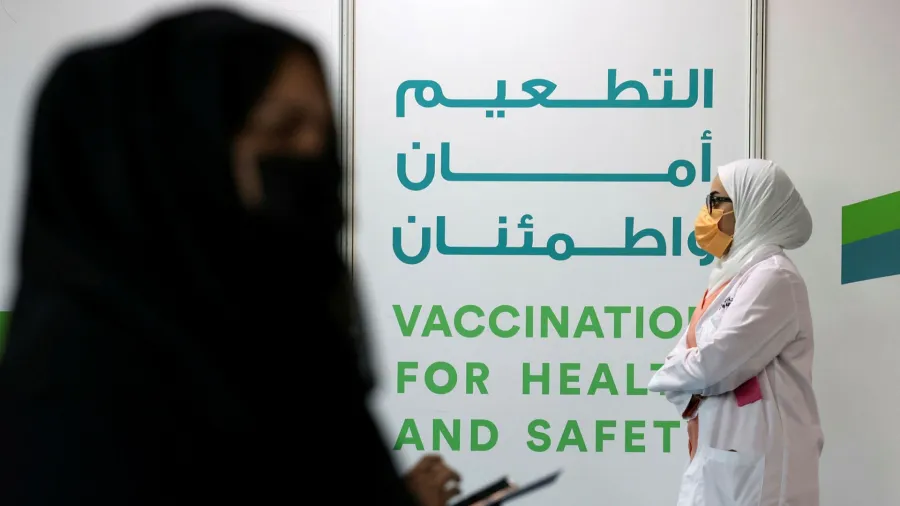
UAE's vaccine rollout paves road to recovery
The third of four parts tackles how UAE continues to bounce back from setbacks brought by the pandemic.
The Oxford Business Group released its United Arab Emirates (UAE) COVID-19 Response Report on 7 February. It focused on four areas, namely Resilience, Response, Recovery, and Reinvention.
A robust vaccination campaign helped the UAE contain the pandemic
The UAE has rolled out one of the most robust vaccination campaigns globally, with the country overtaking Israel to record the highest vaccination rate globally by mid-May 2021. Since the rollout began in December 2020, SEHA has provided several access points to arrange appointments for the Sinopharm and Pfizer-BioNTech vaccines in Abu Dhabi and Dubai. Citizens and residents can book vaccination appointments through SEHA's smartphone application, online portal, or call centre. In June 2021, the company announced that about 70% of its patient bookings will be automated following the launch of its services on the social media platform WhatsApp.
An effective vaccination campaign paved the way for a broad-based recovery
Abu Dhabi has linked the reopening of service industries to the success of the vaccine rollout campaign. From 20 August 2021, the small minority of eligible citizens and residents who remain unvaccinated are restricted from entering most public places, with 93% of target groups fully vaccinated. Conversely, these spaces are freely open to those who are vaccinated. Meanwhile, the Abu Dhabi government announced plans in early August 2021 to offer booster shots to those who are fully vaccinated, either three or six months after the second dose, depending on risk factors.
A pandemic-spurred rapid adoption of digital solutions and new technologies in health care
Supported by robust digital infrastructure and the ongoing rollout of 5G services, the digital transformation process in the UAE has further accelerated as a result of the pandemic-induced shift towards remote work, commerce, and service provision. This digital shift presents new opportunities for the health care sector to enhance efficiencies and develop new services that improve patient outcomes. Public and private operators in the health care sector were aided by a supportive policy environment for digital innovation across society.
According to the 2021 Health System Digital Transformation Survey by the Deloitte Centre for Health Solutions and the Scottsdale Institute, the top three function areas health executives want to invest in digitally are patient engagement, information technology, and clinical care delivery. So far, the UAE has made the following steps to boost digital developments in healthcare:
- Development of a Data Law with major technology countries on the use, storage, and sharing of personal data;
- Establishment of an Open Data platform by the Abu Dhabi Digital Authority to enhance transparency and make data management more effective;
- 100 Coders Every Day programme to attract 100,000 coders to the country's workforce and facilitate the growth of programming companies; and
- Establishment of 500 national technology companies by the Fourth Industrial Revolution Network to promote the adoption of advanced technologies.


















 Advertise
Advertise


